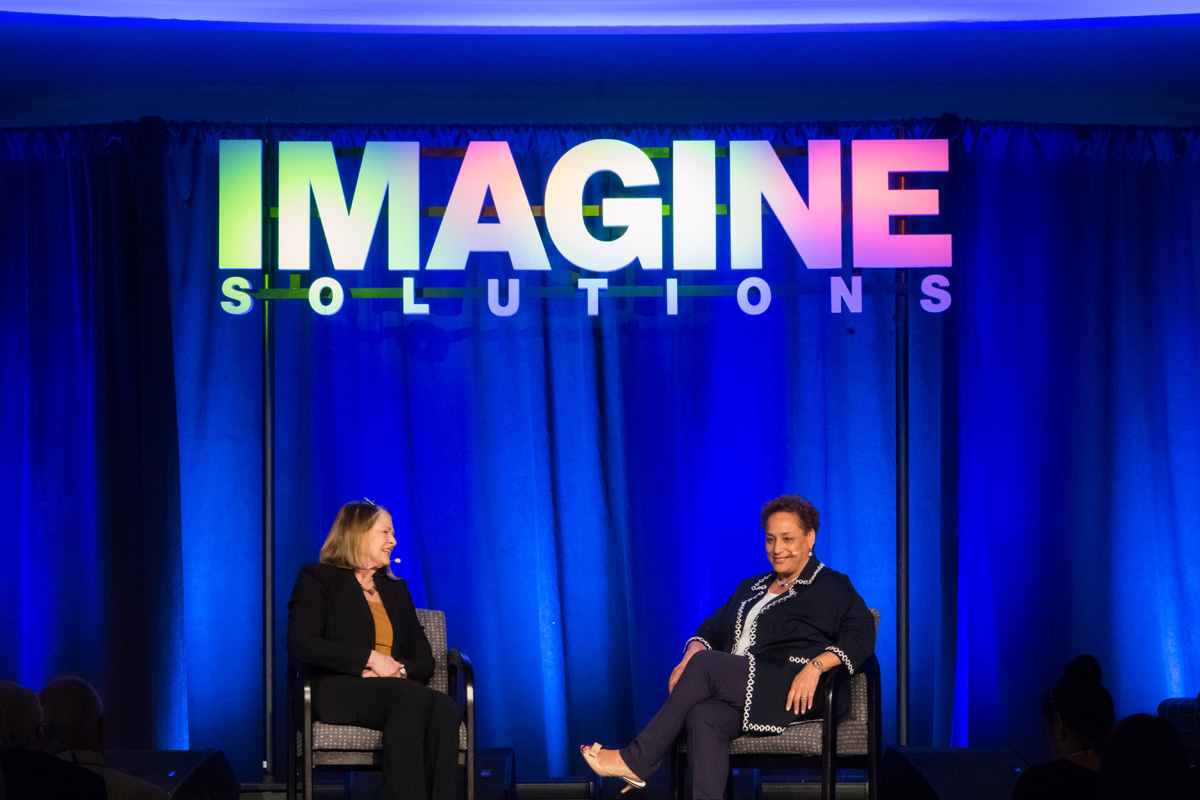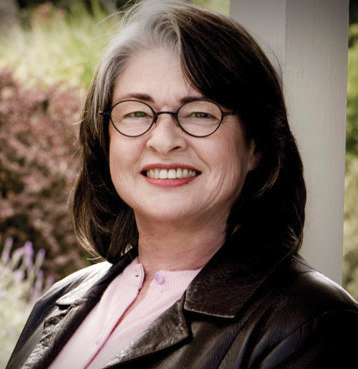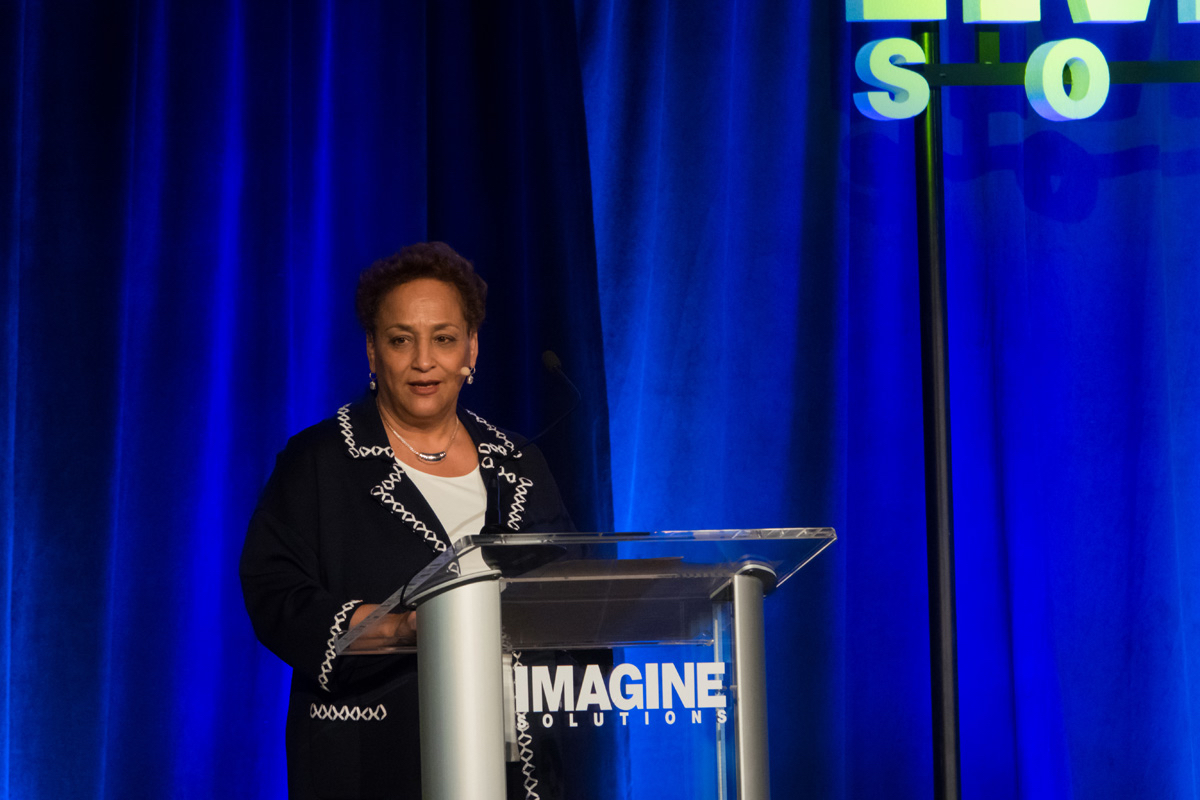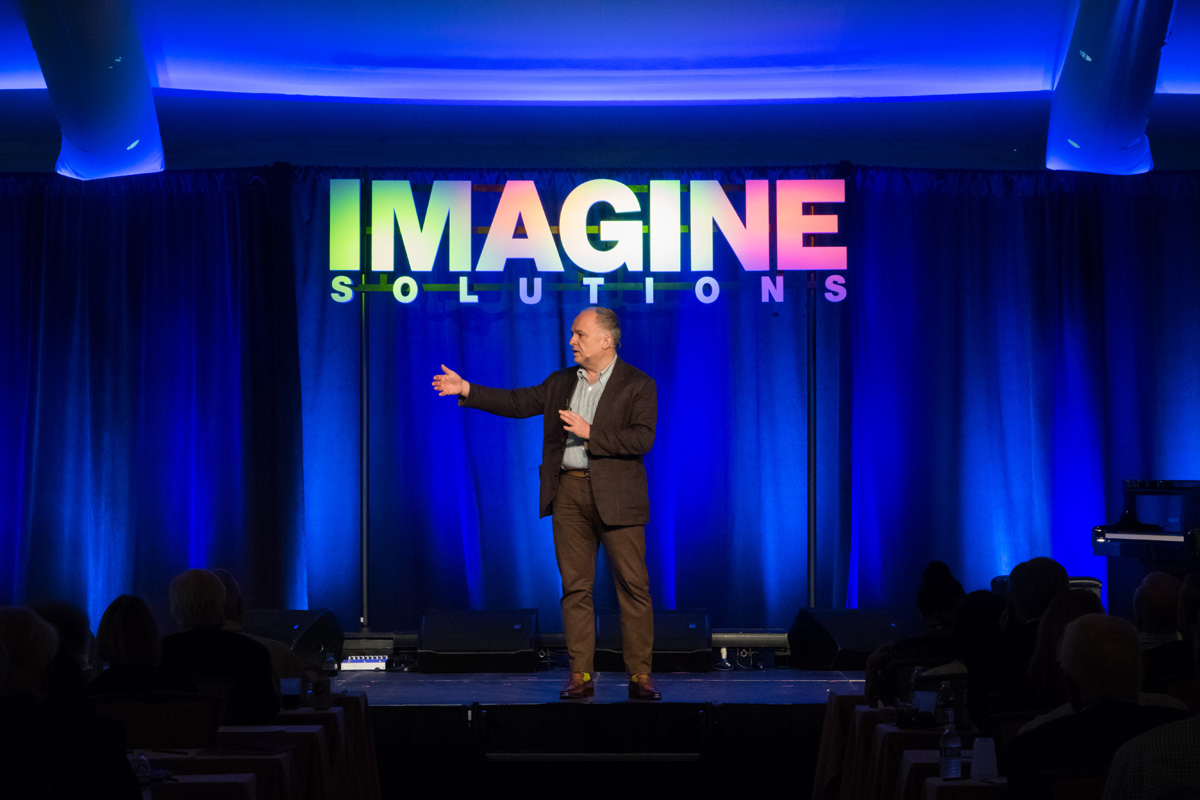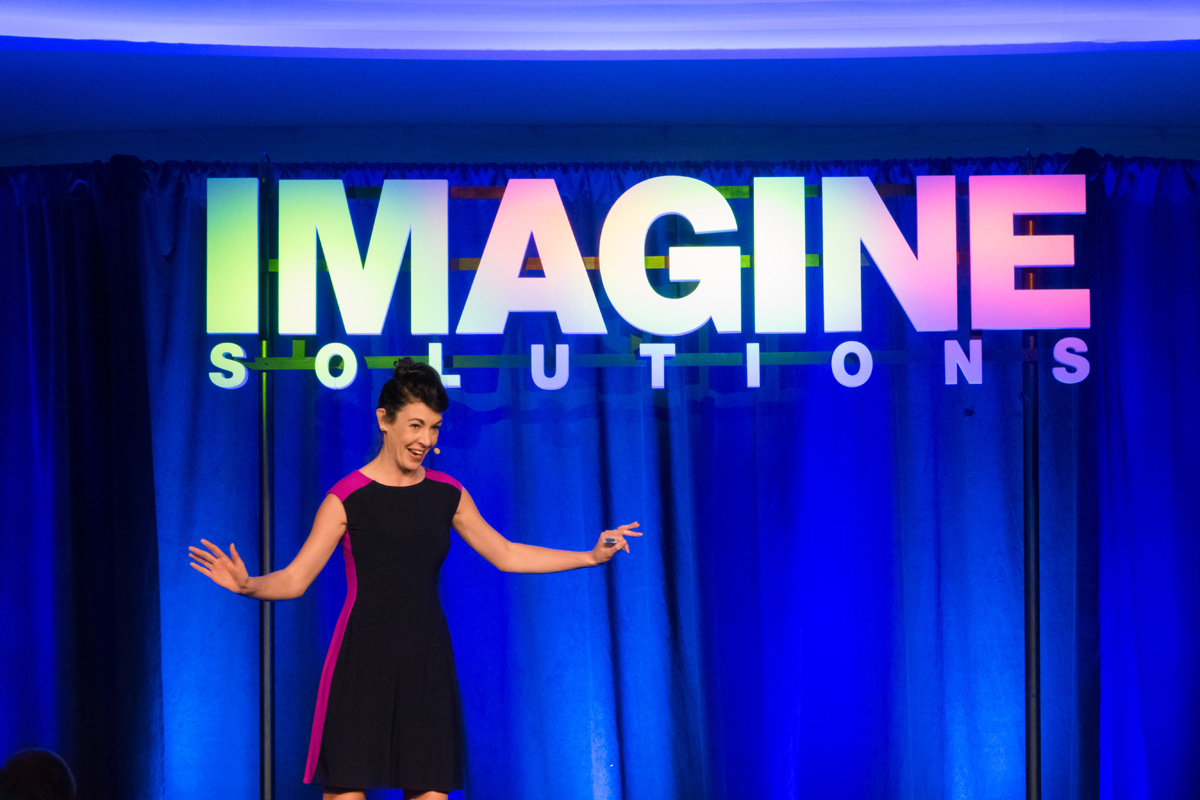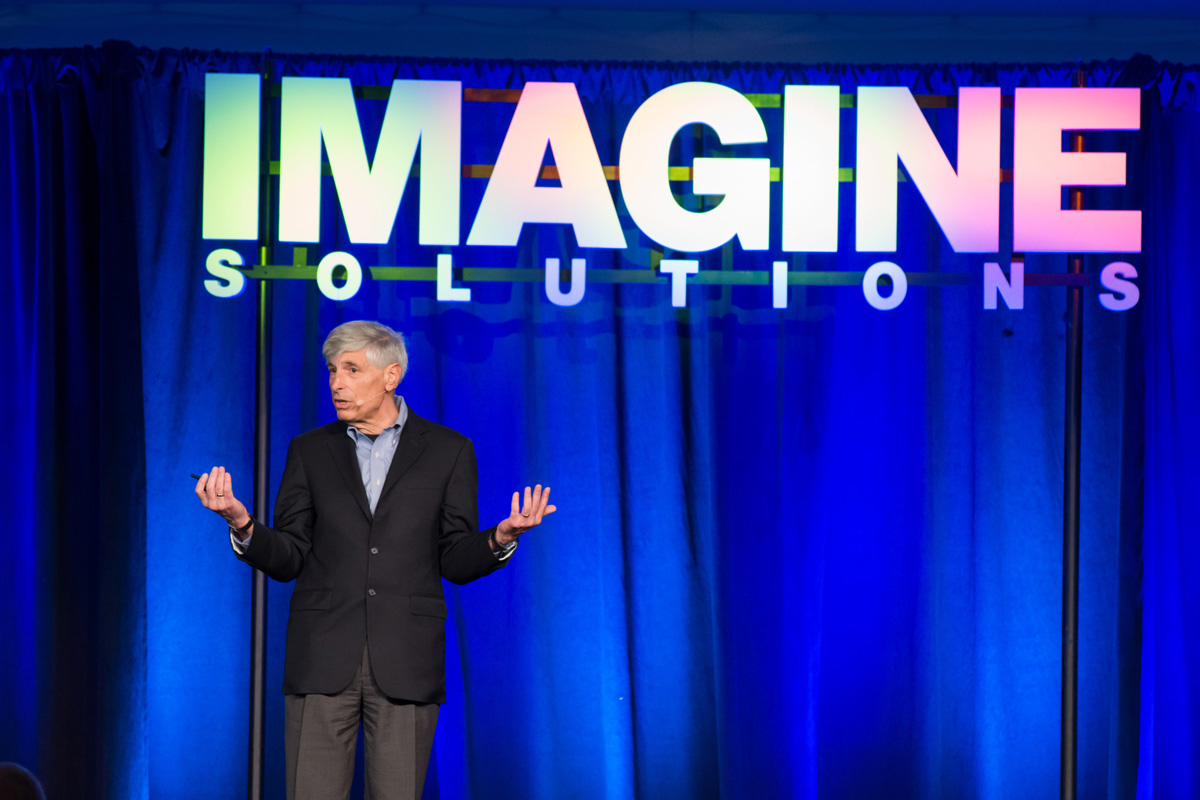A Multi-Generational Approach to Aging
Old age is a moving target, with younger generations destined for vastly different lifestyles than their parents or grandparents. Laura Carstensen, of the Stanford Center on Longevity, interviews AARP’s Jo Ann Jenkins about the organization’s newly disruptive approach to aging. Under Jenkins’ direction, one of AARP’s core values is to lead as an everday innovator in aging, geared towards helping people of all ages live their best lives. How do we come up with age-independent solutions that benefit all generations? The focus, according to Jenkins, should be on living, not per se on aging. The conversation has to be multi-generation and inclusive, to determine how to craft the right strategies.
00.00
I hope you've been enjoying this session I've been enjoying it and hearing about the kinds of innovations oh thank you that are that are coming every day I mean you will not be living your grandparents old age everything this is a moving target what old age is and how people respond to it and it's such a pleasure to get to talk to you Joanne because you have done so much in a relatively short time at the helm of AARP regarding innovation for a lot of people don't think of AARP they don't associate innovation in AARP but they do now anybody who's following it the work you've been doing is is extraordinary tell us tell us more about what's going on well great well thank you Laura because I I think it's so important because AARP now has 38 million members we're the largest membership organization in the world our magazine ATM the magazine just surpassed people as the most read
01.02
magazine so we're very excited about that but as you said I think one of the core values that we are instilling and everybody who works with our for AARP is that it's our responsibility to be everyday innovators and aging and so as part of that we've started investing in start-up companies like some of the ones you just saw about how do we help people live their best life regardless of what age that is we're also having a whole host of startups inside of AARP where we're co-creating around artificial intelligence and looking at all of those issues obviously a lot of work around medication management and caregiving services as well as the autonomous vehicles and the opportunity that that's going to have to solve some of the issues around isolation but more generally how do we come up with ageless solutions so not just coming up with solutions for the old but how do we
02.01
create solutions that will benefit the young so it's not pitting generations against each others you know when we did the work out in California addressing sidewalk issues for people who may need since getting across the street our biggest partner there were mothers and fathers with strollers who that curvature in the sidewalk actually benefited them as well and I think it's exciting for all of our staff to be at the forefront of how we can change this concept around aging and focus it more on living regardless of how old you are or what age you are so very exciting about that and that actually fits into a lot of the work that I know you have been doing out at the the center about you know how do we look at generations and address so that it's not just hitting the old against the young but coming up with solutions that address multiple generations problems so it's true that when when you focus a
03.03
conversation on aging it's a very different conversation that when you have focus a conversation on longevity yes when we started the center on longevity at Stanford a decade ago for a lot of people they would hear about the center on longevity and sort do wink-wink you know it's you're really talking about Center on Aging aren't you and we're not the most universities have centers on aging most of them focus on the very important I must say just struggles with frailty and dementia and caregiving when you have a center on longevity we bring in pediatricians Philip PSO is a pediatrician and we have as many pediatricians involved in our Center as geriatricians labor economists people from the Education School from the business school because if we if we think about all of life and stretching it out it's about everybody it's not about one generation not to mention the
04.01
fact that if we only focus on old we're gonna have that experience of Groundhog Day where every generation that arrives at old age goes oh gosh maybe I should have lived my life differently and we've got to go beyond that well and I think the conversation that was had earlier today around the hundred year life yeah I mean we are not just adding 10 to 15 years at the end of life we're gonna have to redesign our whole life course and and continuously educate ourselves so not just go to high school in college in grad school but throughout the course of 50 60 70 years continue to upgrade our skills now one of the things that I've been most fascinated about as I talked to CEOs around the country about what are the new skill sets you know we have a growing group of 50-plus folks who are overly educated experienced reliable you know what are the jobs of the future and I think most CEOs will tell you besides robotics and data analytics they have no
05.01
idea what skill sets they're going to need five years from now and so this constant reinvigorating of the educational process and the fact that I know for AARP they're asking me backstage about a or P versus art versus the American Association of Retired you know we dropped American Association of Retired Persons some fifteen six three years ago in recognition of the fact that our our members aren't retiring they want to continue to work and so whether that's full-time or part-time or whether they want to take a sabbatical and I think that's what you're going to see a lot more of like it used to be somebody worked at the same company for thirty years people are going to have the opportunity to have two to three or perhaps four totally different kinds of careers during the course of a hundred year life and so the opportunity to step back take those sabbaticals get re-energized re-educated move into a
06.01
totally different field is going to be commonplace and so we're gonna have to think rethink traveling human resources so that the human resources and healthcare components actually travel with the person rather than the company are and you know the conversations we've had in the past about pensions and retirements how will we make sure that people are saving earlier longer and also living healthier at a much earlier age it's a lot to think about it's life there's a lot to really all of life will change I can't think of any of life's fundamentals the family education system politics financial security all of these aspects of our lives will change and in coming years you know when you talk about people working longer we also have conversations often in public discourse about aging workforces and the concern that employers have about aging
07.01
workforces and one of the things again that I think gets missed is they're not just aging workforces they're gonna be multi-generational workforces and that's something we'd never had in history in the workforce it really has been young people at work and not older people the few studies that have been done on multi-generational team work are exciting it looks like they're more productive than either all old groups or all young groups in fact at AARP we have four generations in the workplace now at our headquarters in our state offices around the country and that's going to be the norm moving forward people are going to have sums in some cases six to seven sets of grandparents at some form throughout the course of the lifetime and it's it's exciting to see what the possibilities are but also how are we going to manage that in the workplace we expanded our intern program where we bring in several hundred young people
08.02
out of colleges but in the last couple of years we've also expanded our 50-plus interns so we have 50-plus interns who perhaps have retired and they want to come back and sort of work and find purpose and meaning and some of the work that they're doing and I think it's a wonderful thing to see those multiple generations and a lot of the corporate America are creating positions for executive or long service employees to come back in and serve as mentors to some of their younger workers and those are full-time positions and I'm as a mentor in the actual workplace and I think that's a wonderful opportunity that's great you know again we hear people are so worried about having a lot of old people in those society and again take this as a reframe think of we've never had societies where we have more adults than children which should be the best thing that ever happened right so there's shit there doesn't have to be a child around that
09.01
doesn't have an older person invested in them and certainly grandparents are doing that and there's a lot of evidence now that grandparents are really changing the quality of life for their grandchildren and then everyone so I'll meet somebody who says yeah but I don't have a grandchild you know my daughter my sons decided not to have kids and I say go get one around up there there's a lot of them in there there's there's some data on on school-aged children too suggesting that one of the best predictors of high school graduation and at-risk kids is the presence of an adult in addition to the parents who are crazy about them it can be a grandparent but it can be a neighbor a friend so in having the resources having enough of us to go around all din their lives yeah well a friend about both hours mark Freedman started a program maybe some of you have heard of it called experience car and an AARP acquired experience
10.00
course several years ago but the concept is that you have an older adult who actually goes into K through 12 in this case k2 third grade classrooms and helped them and the teachers with reading and so we worked with Johns Hopkins to make sure we validated what the impact was going to be on the students and obviously there was a huge increase in the reading level of students but an even bigger impact on the adult who were going into the classrooms and the service that they were providing in a maternal of a paternal grandparents itch ooh a ssin their impact of them finding more meaning and purpose in their own lives by volunteering at a neighborhood school was even bigger than the impact on the the children in the classroom so I think that's an important aspect to keep active keep engaged it's more about living than it is about aging and I think we're gonna all be in a good place there's there's there's a lot of change going on and Joanne we are so lucky to
11.03
have you running things in Washington there I wouldn't say that thank you all very much we hope you enjoyed the morning look forward to working with you thank you all [Applause]

